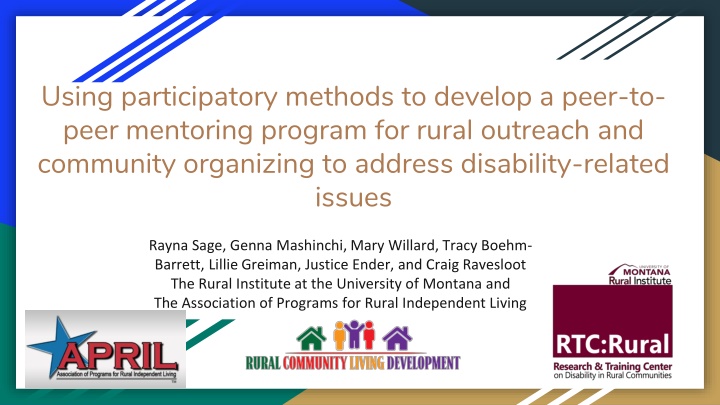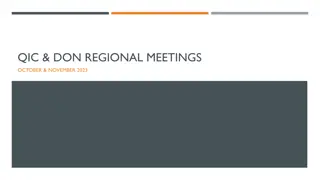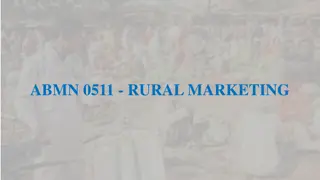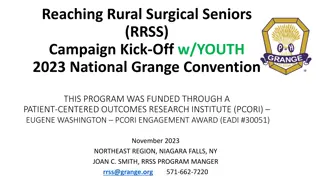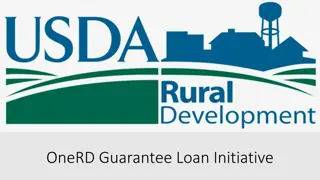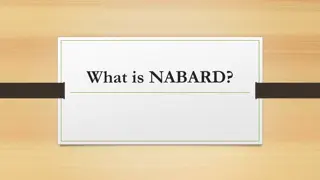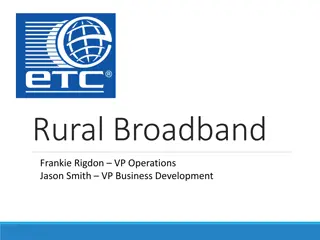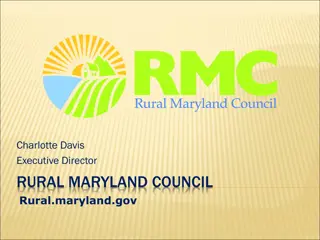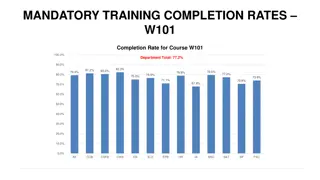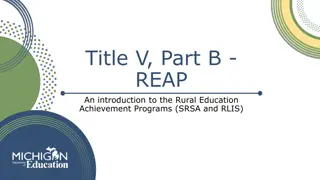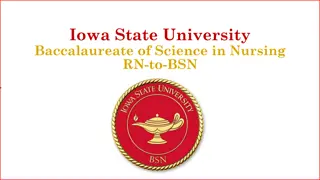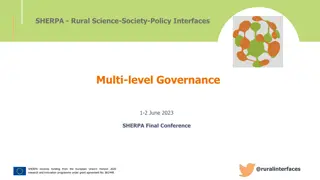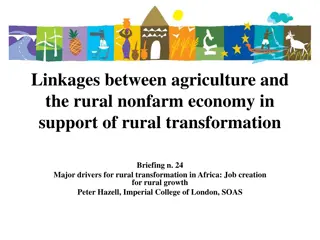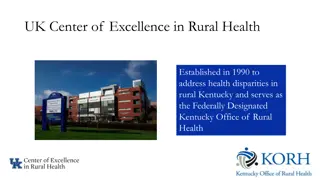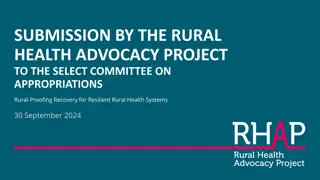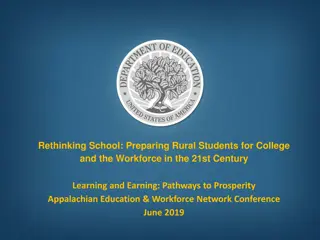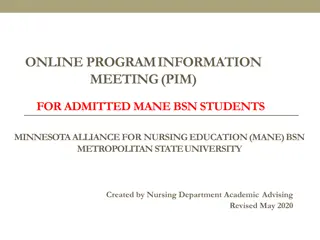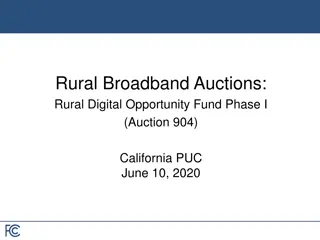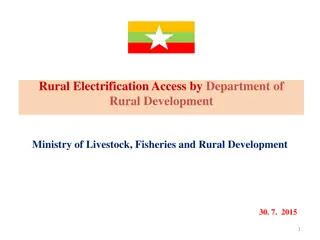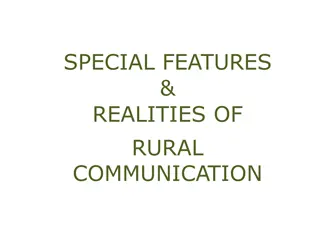WCN Rural Initiative - BSN Completion Partnerships
Encouraging BSN completion for rural nurses, addressing challenges and barriers, and increasing BSN ratio in rural organizations. The initiative includes establishing baseline data, updating organizational incentives, proposing university partnerships, and setting goals. Assessments show current state, readiness, incentives, and barriers with corresponding solutions. A partnership with UW-Eau Claire focuses on BSN completion support for Black River Memorial Hospital.
Download Presentation

Please find below an Image/Link to download the presentation.
The content on the website is provided AS IS for your information and personal use only. It may not be sold, licensed, or shared on other websites without obtaining consent from the author.If you encounter any issues during the download, it is possible that the publisher has removed the file from their server.
You are allowed to download the files provided on this website for personal or commercial use, subject to the condition that they are used lawfully. All files are the property of their respective owners.
The content on the website is provided AS IS for your information and personal use only. It may not be sold, licensed, or shared on other websites without obtaining consent from the author.
E N D
Presentation Transcript
Using participatory methods to develop a peer-to- peer mentoring program for rural outreach and community organizing to address disability-related issues Rayna Sage, Genna Mashinchi, Mary Willard, Tracy Boehm- Barrett, Lillie Greiman, Justice Ender, and Craig Ravesloot The Rural Institute at the University of Montana and The Association of Programs for Rural Independent Living
The Issue Doing outreach and providing disabilities services in rural places is unique and sometimes different than in urban centers Disabled people* as end-users are often left out of the development process *Per guidance by disability advocates, we use identity-first and person-first language interchangeably.
Community-Based Participatory Research and Independent Living Values CBPR principles (Minkler & Wallerstein, 2008) Participatory Cooperative Co-learning Systems development and community capacity building Empowering and shared control Balance between research and action Independent Living Philosophy (DeJong, 1979) 1973 Rehabilitation Act Civil Rights Demedicalization/Self-care Consumer choice and control Peer support Deinstitutionalization
This Project The challenge: Write a curriculum that is broad enough to encompass community nuances and specific enough that CIL staff can see themselves Recruited 7 staff from Centers for Independent Living who also have disabilities 4 Rural Institute staff and the 7 members met weekly from June, 2020-March, 2021 Generated 105 pages of detailed notes
Participatory Curriculum Development Original Topics Situation Analysis Rural outreach and networking strategies Stakeholder analysis Team building What does it mean to be a community mentor? SWOT analysis Curriculum fit analysis Meeting logistics Orienting community partners Followed by a 4-week process for each topic identified Identifying community resources Independent Living Values Group process framework Identifying community champions
The Participatory Curriculum Development Process To develop each curriculum chapter, the following process was followed: Week 2: From questions, write draft and review together to gather feedback Week 3: Speak with consumers/rural stakeholders to get additional feedback Week 4: Add last details and edits to finish draft Week 1: Email brainstorming questions, discuss each one in the meeting
Step 1: Brainstorming and Building Off of Questions Team wrote questions and presented to group, reviewing each one individually Group provided examples and discussed their unique experiences Included rural considerations Example Question: If you were going to mentor another CIL staff in doing rural outreach and networking, what would you want to share with them? From this came two sections of the curriculum that were not originally included: Evaluation and Communicating Outcomes
Step 2: Writing Curriculum Based on Discussion Using voice of partners to emphasize what they felt is most important in each section Examples: inclusion of universal design, plain language, conducting outreach at barbershops, bars, etc. Curriculum also included websites to resources sent in from partners Curriculum was first drafted and edited in Word, with future plans to be an online resource after initial piloting
Step 3: Asking Consumers/Rural Stakeholders Examples: One partner interviewed 6 consumers and a mental health agency and asked them the the same brainstorming questions that the group was asked Learned how important it is for videos to be accessible, how being virtual has been beneficial for individuals with disabilities Another partner met with a focus group and discussed the importance of flexibility and not having an agenda upon first meeting consumers
Step 4: Reviewing Curriculum with Group Allowed for final feedback, discussion, and processing of certain topics (e.g., cultural considerations) What is still missing? Allowed for additional brainstorming/new examples to emerge Included further accessibility/rural considerations based on additional conversations (e.g., universal design, plain language)
Opportunities and Challenges Independent Living Philosophy: each CIL carries out core services differently and with a different emphasis Disagreements on curriculum material: E.g.: whether to create a manual or use videos to get buy-in from centers Encouraging both sides to describe their viewpoint/experience, reoriented to main goal of the curriculum that was initially agreed upon Challenged to write a curriculum that is broad enough to encompass community nuances and specific enough they can find themselves in it
End Result Final topics Rural outreach and networking strategies An end-user informed curriculum for providing peer support in rural outreach and service Building effective community development teams Cultivating curiosity to establish health group dynamics Currently piloting in Ohio, South Carolina, Georgia, and Virginia Evaluation Independent/Community living values Final curriculum will be housed by and sustained by APRIL (Association of Programs in Rural Independent Living) Building on community living strengths Community meeting logistics Building support Communicating outcomes
Funding Disclaimer This work was supported by a grant from the National Institute on Disability, Independent Living, and Rehabilitation Research (grant number 90DPKT0005). NIDILRR is a Center within the Administration for Community Living (ACL), Department of Health and Human Services (HHS). The research does not necessarily represent the policy of NIDILRR, ACL, or HHS and one should not assume endorsement by the federal government.
